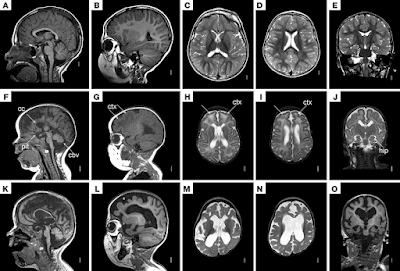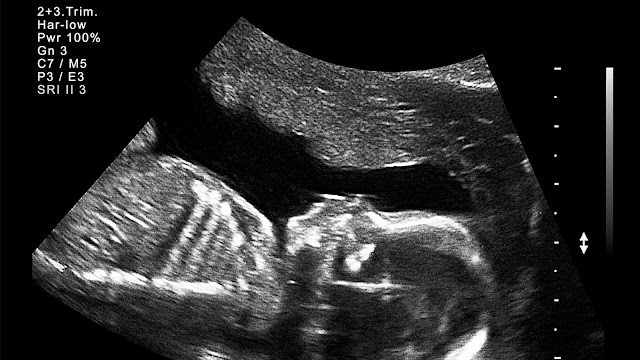Depression is often described as a mental health condition, but its impact extends far beyond the mind. It affects nearly every system in the body, disrupting daily life, and, if left untreated, can lead to long-term physical health complications. In this blog, we’ll explore the profound ways depression affects the body, highlighting the interconnectedness between mental and physical health.
1. The Brain Under Siege
At the core of depression is its impact on the brain. Depression alters the brain’s structure and function in several key ways:
- Neurotransmitter Imbalance: Neurotransmitters like serotonin, dopamine, and norepinephrine are crucial for mood regulation. Depression is associated with imbalances in these chemicals, which can affect mood, energy levels, and cognitive functions like memory and concentration.
- Structural Changes: Studies have shown that chronic depression can lead to a reduction in the size of the hippocampus, the area of the brain responsible for memory and emotion regulation. This shrinkage can impair emotional regulation and contribute to the cycle of depression.
- Inflammation: Depression is linked with increased levels of pro-inflammatory cytokines, which can cause neuroinflammation. This inflammation can alter neurotransmitter production and impair brain function, further exacerbating depressive symptoms.
2. The Nervous System in Overdrive
Depression triggers the body’s stress response system, leading to persistent activation of the sympathetic nervous system. This activation has several physiological effects:
- Chronic Stress Response: The body remains in a constant state of “fight or flight,” releasing stress hormones like cortisol and adrenaline. While this response is adaptive in short bursts, chronic activation leads to wear and tear on the body.
- Cortisol Dysregulation: Elevated cortisol levels can have numerous effects, including impaired immune function, increased abdominal fat, and disruptions in sleep. Chronic cortisol elevation is also linked to the development of other psychiatric disorders like anxiety.
3. Cardiovascular System Strain
The cardiovascular system does not escape the effects of depression:
- Increased Heart Rate and Blood Pressure: The persistent activation of the stress response can cause an elevated heart rate and blood pressure, increasing the risk of heart disease.
- Inflammation and Atherosclerosis: Depression-related inflammation contributes to the development of atherosclerosis (plaque build-up in the arteries), which can lead to heart attacks or strokes.
- Risk of Heart Disease: Depression has been linked to an increased risk of developing coronary artery disease, and individuals with existing heart conditions are at a higher risk of depression, creating a vicious cycle.
4. Impact on the Immune System
The immune system is intricately linked with mental health. Depression weakens the immune system, making the body more susceptible to infections and illnesses:
- Immunosuppression: Chronic stress and elevated cortisol levels suppress immune function, reducing the body’s ability to fight off infections.
- Increased Inflammation: While some inflammation is a healthy immune response, chronic inflammation due to depression can lead to a host of problems, including autoimmune disorders and increased susceptibility to chronic diseases like diabetes and cancer.
5. Digestive System Disruptions
Depression also significantly impacts the digestive system, often manifesting as gastrointestinal (GI) symptoms:
- Altered Appetite: Depression can cause either a significant increase or decrease in appetite, leading to weight gain or loss. This change is partly due to the dysregulation of neurotransmitters that also affect hunger and satiety signals.
- Gastrointestinal Distress: Many individuals with depression experience symptoms like nausea, constipation, or irritable bowel syndrome (IBS). The gut-brain axis, a communication network linking the gut and the brain, plays a crucial role here. Depression can disrupt this communication, leading to GI issues.
- Microbiome Changes: Emerging research suggests that depression can alter the gut microbiome, the community of bacteria in the digestive tract, which may further affect mood and overall health.
6. Endocrine System Effects
The endocrine system, responsible for hormone regulation, is also disrupted during depression:
- Hormonal Imbalances: Depression can lead to imbalances in several hormones, including thyroid hormones and sex hormones like estrogen and testosterone. These imbalances can exacerbate depressive symptoms and contribute to other health problems, such as menstrual irregularities or sexual dysfunction.
- Metabolic Changes: Depression is associated with metabolic syndrome, a cluster of conditions including increased blood pressure, high blood sugar, and abnormal cholesterol levels. This syndrome significantly raises the risk of type 2 diabetes and heart disease.
7. Musculoskeletal Pain
Physical pain is a common, though often overlooked, symptom of depression:
- Chronic Pain: Depression can manifest as chronic pain, particularly in the back, joints, and muscles. This pain is thought to be a result of both increased inflammation and altered pain perception due to neurotransmitter imbalances.
- Fatigue and Weakness: The persistent fatigue associated with depression can lead to muscle weakness and a reduced capacity for physical activity, contributing to a cycle of inactivity and worsening depression.
8. Sleep Disturbances
Sleep and depression have a bidirectional relationship, with each affecting the other:
- Insomnia or Hypersomnia: Depression commonly leads to insomnia (difficulty falling or staying asleep) or hypersomnia (excessive sleeping). Both can exacerbate depressive symptoms and impair daily functioning.
- Disrupted Sleep Architecture: Even when individuals with depression do sleep, the quality of sleep is often poor. There is typically a reduction in the amount of restorative deep sleep and an increase in REM sleep, which can lead to fatigue and difficulty concentrating.
9. Reproductive Health Concerns
Depression can affect reproductive health in both men and women:
- Sexual Dysfunction: Depression is strongly linked to sexual dysfunction, including decreased libido, erectile dysfunction in men, and anorgasmia (inability to achieve orgasm) in women. This can further strain relationships and contribute to worsening depression.
- Pregnancy and Postpartum Depression: Women with a history of depression are at a higher risk of developing depression during pregnancy and postpartum. This can affect both the mother’s and the baby’s health, leading to complications such as low birth weight and developmental delays.
10. Long-Term Health Consequences
The chronic nature of depression means that its effects can accumulate over time, leading to long-term health consequences:
- Increased Risk of Chronic Diseases: The chronic inflammation, hormonal imbalances, and metabolic changes associated with depression significantly increase the risk of developing chronic diseases such as heart disease, diabetes, and certain types of cancer.
- Reduced Life Expectancy: Studies have shown that individuals with chronic depression have a reduced life expectancy, largely due to the increased risk of chronic diseases and the effects of poor health behaviors like smoking, alcohol use, and physical inactivity.
Conclusion
Depression is far more than just a mental health condition; it is a systemic illness that affects nearly every part of the body. Understanding the physical manifestations of depression underscores the importance of comprehensive treatment approaches that address both mental and physical health. If you or someone you know is struggling with depression, it is crucial to seek help from healthcare professionals who can provide support and guidance on managing both the psychological and physiological aspects of this complex condition. By addressing depression holistically, we can mitigate its widespread effects and improve overall well-being.



.jpeg)
.jpeg)




.jpeg)
.jpeg)

0 Comments